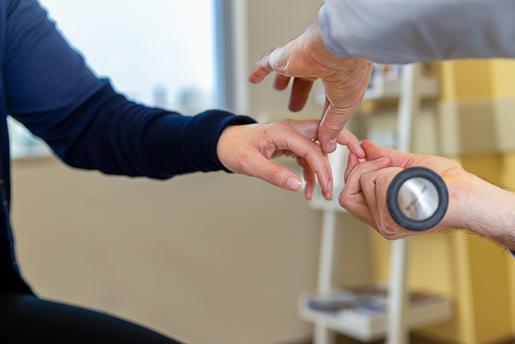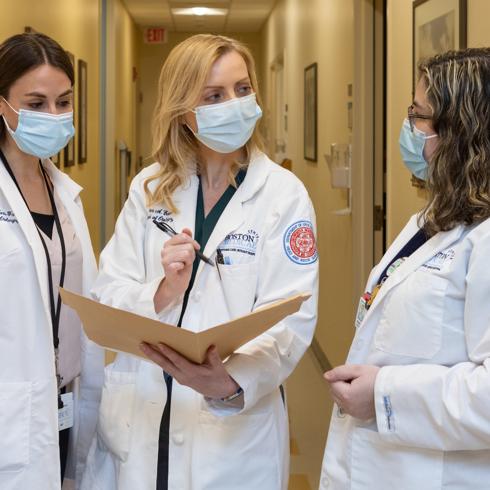If a neurological disorder is disrupting your daily life, the Functional Neurosurgery team can help. We use state-of-the-art treatments such as deep brain stimulation to relieve pain, restore function, and help improve your quality of life.
Location and Contact
Neurosurgery Department
Monday – Friday 8:30 a.m. to 5 p.m.
Explore the Department
Related Departments and Clinics
Neurosurgery
Neurology
Anesthesia Pain Clinic

Neurosurgery Residency
The combined Beth Israel Deaconess Medical Center (BIDMC) and BMC Neurosurgical Residency Program gives residents a unique opportunity to train at three medical centers in New England, all of which treat patients with some of the most complex neurologic conditions. During their seven years of training, residents spend equal amounts of time at BIDMC and BMC, six months at Boston Children’s Hospital, and one year carrying out research.

Functional Neurosurgery Research
Our group is engaged in both retrospective and prospective research on functional neurological disorders to learn how best to serve our special population and develop best practices for patient care.
Information You May Need
Billing and Insurance
Login to MyChart
Patient Information
 ht
ht 

 English
English Français
Français Deutsch
Deutsch Italiano
Italiano Español
Español Tiếng Việt
Tiếng Việt